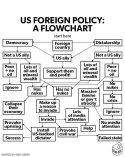US authorities are rounding up Chinese with advanced research backgrounds on charges they have undisclosed ties to Beijing
The FBI last month arrested Gang Chen, a well-known MIT nanotechnologist, and charged the China-born naturalized American with concealing close and lucrative connections to China’s scientific and technological establishment on his applications for federal research grants.
Chen, who has pleaded not guilty and is supported by MIT, is not the only prominent academic figure to be arrested and charged with failing to disclose connections to Chinese research institutes.
At least half a dozen have been arrested in the last year or so. They include Charles Lieber, the chair of the Harvard University Chemistry Department, who is accused of concealing his participation in an ambitious, state-sponsored Chinese effort to recruit top scientists and engineers from around the world to work in China.
Under it, FBI field offices and US Attorneys have conducted hundreds of investigations and made dozens of arrests across the country for technology theft, visa fraud, cyber-espionage and other illicit activities in the United States.
These operations have succeeded in exposing “the diversity of the Chinese effort,” as John C. Demers, the Justice Department’s assistant attorney general for national security, put it. Among its more threatening aspects is a state-directed campaign to send advanced Chinese researchers to the United States while disguising their true identities.
Last July, the FBI arrested four Chinese nationals posing as ordinary graduate school researchers. They were actually Chinese army officers. One of them, Xin Wang, was working in a medical lab at the University of California-San Francisco funded by the National Institutes of Health. Wang admitted to being a major in the Chinese People’s Liberation Army and employed by a military lab in China. He was deported.
Another of the arrested Chinese, Kaikai Zhao, was studying machine learning and artificial intelligence at the Luddy School of Informatics, Computing and Engineering at Indiana University.
What happened after those four arrests was even more revealing about the scope of China’s clandestine presence in the United States. An estimated 1,000 Chinese graduate researchers abruptly fled the country and returned to China – apparently, in the view of American officials, because they had concealed their ties to the Chinese military and were afraid of arrest.
Still, 1,000 researchers represent a tiny fraction of the 360,000 Chinese nationals enrolled in American colleges and universities, many of whom, perhaps the large majority of whom, are engaged in activities above reproach.
US taxpayers subsidize the education of many of the Chinese grad students working in labs and research institutes around the country. At MIT alone, there are generally between 700 and 800 Chinese graduate students at any given time, in addition to more than 100 exchange and visiting scholars.
It is standard procedure at most major universities that advanced graduate students in technical fields cover the cost of their studies through salaries from the labs where they work, and the salaries are commonly paid out of grants from such federal agencies as the National Science Foundation, NASA, the Department of Energy and the National Institutes of Health.
“It’s no mystery who pays for research that goes on at top-level research institutions,” one senior professor said, asking not to be named. “It comes from domestic grants, not from abroad.
“If you have 360,000 undergraduates, that’s not much of a risk,” Demers said. “If they’re graduate students, you look at the fields they’re in, and the more sophisticated they are, the more risky it is. The Chinese are trying to get the latest 5% of cutting-edge research, and only the most sophisticated researchers can do this.”
Many academics and China experts say this investment in Chinese-born students helps the United States. In speeches and articles, for example, MIT’s president, L. Rafael Reif, has argued that international exchanges are of inestimable value to the United States and that substantial numbers of the advanced Chinese students choose to remain in America, where they contribute to the progress of American science.
One study cited by Reif shows that around 80% of the Chinese getting doctorates in the United States are still in the country 10 years after receiving their degrees.
Even if some of them maintain ties to colleagues and research institutes in China, Reif and many others argue, the key to scientific supremacy is not impeding someone else’s progress, but increasing America’s own investments in research, development and talent.
Still, a major part of China’s modernization push depends on the acquisition of technology from scientifically advanced Western countries, whether through legal, transparent means or by espionage and other illicit practices.
“The PRC and their leadership still do not believe that they’re going to succeed in their tech breakout without siphoning off massive amounts of tech from the United States,” Matt Pottinger, the departing Trump administration deputy national security adviser, said.
“You hear that they’ve already broken out, that they don’t need us, and there are pockets where that’s true, but they lack confidence that they can achieve and sustain a technology edge without significant access to American labs.”
The Trump administration took what some former officials call a “targeted approach” to the Chinese effort to send to the US students who are directly under the control of the Chinese government. Last year, for example, it canceled visas for students directly affiliated with the Chinese military, as well for students coming to the country on Chinese government scholarships that required them to share whatever they learned with the Chinese state.
An estimated 2,000 students were expelled or barred from coming to the country – not including the thousand who fled on their own – a number still representing less than 1% of Chinese students in the US. Nonetheless, cracking down on them, as Pottinger put it, served as “a warning shot, and we had info that these people were there basically to siphon technology.”
“There are cases where we discovered US government grants where the primary interlocutor would be an American, but most of the work was being done by PRC [People’s Republic of China] nationals,” Pottinger said. “It was a sign to us of how complacent the screening procedures were for Department of Defense contracts. Sometimes it was really sensitive stuff.”
In some cases discovered by Joske, Chinese military officers working abroad claim affiliation with “non-existing institutions with innocuous-sounding names,” presumably to avoid calling attention to themselves on their visa applications.
At least five scientists from the military’s Rocket Force Engineering University have traveled abroad as visiting scholars, giving their home institution as the Xian Research Institute, which, Joske says, appears to exist only on paper.
The main charge against Lieber, the former chairman of the Harvard chemistry department, is that he concealed his involvement in the so-called Thousand Talents Program to recruit scientists to China, for which, according to the FBI, he was paid a salary of $50,000 a month by the Wuhan University of Technology, which also gave him a $1.5 million grant to establish a research lab there.
“The government has this wrong,” maintains Lieber’s lawyer, Marc Mukasey. “He is the victim in this case, not the perpetrator.”
In addition to Chen and Lieber, professors from the University of Arkansas, the University of Kansas, West Virginia University, the University of Tennessee, among other schools, have been indicted on similar charges. Their specialties have included biomedical engineering, chemical nanoscience, molecular reactions in coal conversion, and cardio-vascular genetics.
One of these cases is against Simon Saw-Teung Ang, a Malaysian-born American citizen who until 2020 was the director of the High Density Electronics Center at the University of Arkansas.
Ang, according to the Justice Department announcement of his arrest, concealed that he “received money and benefits from China and was closely associated with various companies based in China during the same time he was receiving grants from various United States Government agencies,” including NASA.
The government also alleges that he kept his China ties secret because for fear disclosing them might jeopardize his federal grant applications.
The crime alleged against American academics is essentially that they sought to defraud the American taxpayer by concealing required information on grant applications and, in some instances, by double-dipping – getting money from the American government to carry out research that was also being financed by China.
In the case of MIT’s Gang Chen, the government says he concealed a $19 million payment from China’s Southern Science and Technology University to help create a new center of science and engineering in Massachusetts. But according to Reif, MIT’s president, the money was for MIT, not for Chen individually. “This is not an individual collaboration,” he said. “It is a departmental one, supported by the institute.”
One hundred faculty colleagues of Chen’s wrote an open letter of support, saying that the activities claimed by the government to be criminal are actually “routine and even innocuous,” and that “the complaint against Gang Chen is a complaint against all of us.”


